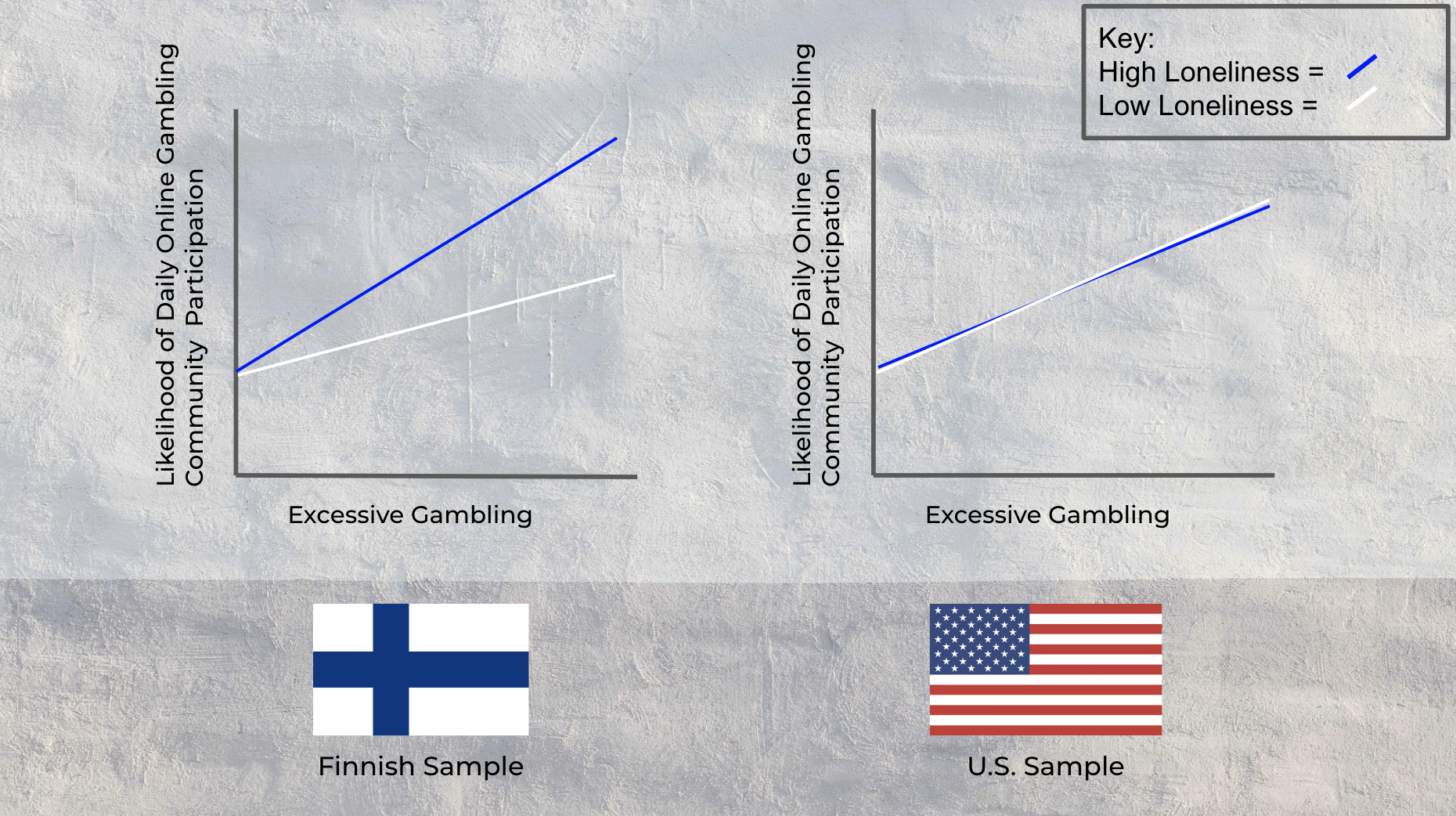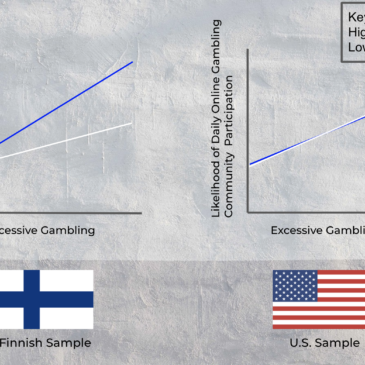People often cite the need to belong and self-presentation as primary motivators to use Facebook. But what about for potentially harmful, niche social networks like online gambling communities? Are the motivators the same? Do these communities attract excessive gamblers, providing a conduit for unhealthy behavior? This week, as part of our Special Series on Addiction and Social Media, The WAGER reviews a study by Anu Sirola and her colleagues uncovering the relationship between daily participation in online gambling communities and problem gambling and whether the level of loneliness affects this association.
What was the research question?
Is excessive gambling associated with daily participation in online gambling communities in emerging adults and does loneliness moderate this association?
What did the researchers do?
The participants included: (1) a representative sample of Finnish participants aged 15 to 25 (N=1,200) and (2) a representative sample of U.S. participants aged 15-25 (N = 1,212).1 Using a self-report survey, the researchers determined if the respondents participated in online gambling communities either daily or less frequently; this was the primary study outcome. Participants reported on excessive gambling by answering the South Oaks Gambling Screen. Researchers assessed loneliness using a three-item loneliness scale. To examine the association between these measured variables, the researchers used a multivariate logistic regression analysis.
What did they find?
The daily participation in online gambling communities was relatively small, with 4% of participants partaking in the Finnish sample and 7% in the U.S. sample. Among both samples, excessive gambling was positively associated with daily participation in online gambling communities. Interestingly, loneliness only moderated this association among the Finnish sample. In other words, in the Finnish sample, the link between excessive gambling and daily participation in online gambling communities was especially strong among highly lonely respondents (see Figure).

Figure. A hypothetical presentation of the association between excessive gambling and likelihood of daily online gambling community participation. Though we did not have access to the underlying data, we created this figure to help readers understand what the moderating role of loneliness might have looked like. Click image to enlarge.
Why do these findings matter?
Now we know that people who gamble excessively are more likely to participate daily in online gambling communities. Those who visit these communities frequently might want to take stock of their gambling. On the positive side, researchers and clinicians might use these findings to reach people who are struggling with their gambling. Additionally, the results suggest that motivation to participate in online gambling communities may be different across cultures, with loneliness playing an especially strong role in Finland. We need more research with multi-national/cultural samples to understand this more.
Every study has limitations. What are the limitations in this study?
This study was cross-sectional, and thus could not determine causality. It remains unclear which came first, problem gambling or daily participation in online gambling-communities. Longitudinal studies are necessary to determine this, which will ultimately provide insight into whether these online communities are helpful or detrimental for people struggling with either gambling disorder or loneliness.
For more information:
Do you think you or someone you know has a gambling problem? Visit The BASIS Addiction Resources page for gambling screens and self-help tools.
— Alex LaRaja
What do you think? Please use the comment link below to provide feedback on this article.
________________
1. The original study included a third sample, which included 230 Finnish participants who were recruited from popular social media sites. We’re not including them in this review, but their results largely mirrored the larger Finnish sample




